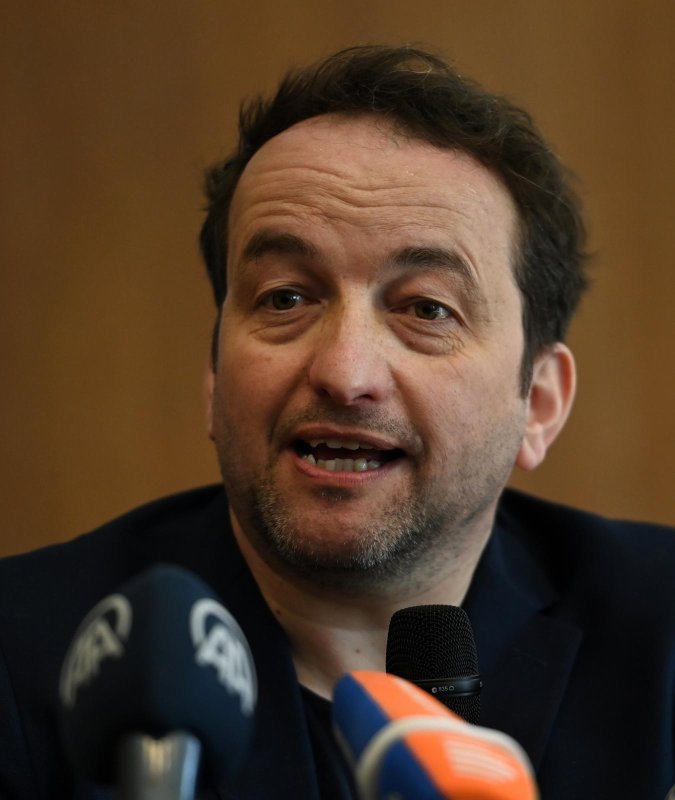Alongside with the President of Russia on the stand were Prime Minister of Armenia Nikol Pashinyan, President of Belarus Alexander Lukashenko, President of Kazakhstan Kassym-Jomart Tokayev, President of Kyrgyzstan Sadyr Japarov, President of Tajikistan Emomali Rahmon, President of Turkmenistan Serdar Berdimuhamedov and President of Uzbekistan Shavkat Mirziyoyev. Before the parade, Vladimir Putin welcomed the heads of foreign states who had arrived in Moscow for the celebrations, in the Heraldic Hall of the Kremlin.
The parade began with the national flag of Russia and the Banner of Victory carried into Red Square. The parade was led by Commander-in-Chief of the Russian Ground Forces Army General Oleg Salyukov and reviewed by Defence Minister Sergei Shoigu.
The marching column on Red Square included 30 ceremonial regiments of over 8,000 service personnel, among them 530 troops taking part in the special military operation.
The motorised column was headed by the legendary “Victory tank” T-34–85. Tigr-M and BTR-82A armoured personnel carriers, Bumerang infantry fighting vehicles, Iskander-M operational tactical missile systems, S-400 Triumf air defence launchers and Yars mobile ground-based missile systems drove through Red Square. The newest Spartak and 3-STS Akhmat armoured vehicles were presented at the parade for the first time.
The music accompaniment was provided by the combined military orchestra.
* * *
Speech by the President of Russia at the military parade
President of Russia Vladimir Putin: Citizens of Russia,
Dear veterans,
Comrade soldiers and sailors, sergeants and warrant officers, midshipmen and sergeant majors,
Comrade officers, generals and admirals,
Soldiers and commanders participating in the special military operation,
Happy Victory Day!
Happy holiday that commemorates the honour of our fathers, grandfathers and great-grandfathers who glorified and immortalised their names by defending our Fatherland. They saved the humankind from Nazism through immeasurable courage and immense sacrifice.
Today, our civilisation is at a crucial turning point. A real war is being waged against our country again but we have countered international terrorism and will defend the people of Donbass and safeguard our security.
For us, for Russia, there are no unfriendly or hostile nations either in the west or in the east. Just like the vast majority of people on the planet, we want to see a peaceful, free and stable future.
We believe that any ideology of superiority is abhorrent, criminal and deadly by its nature. However, the Western globalist elites keep speaking about their exceptionalism, pit nations against each other and split societies, provoke bloody conflicts and coups, sow hatred, Russophobia, aggressive nationalism, destroy family and traditional values which make us human. They do all that so as to keep dictating and imposing their will, their rights and rules on peoples, which in reality is a system of plundering, violence and suppression.
They seem to have forgotten what the Nazis’ insane claims of global dominance led to. They forgot who destroyed that monstrous, total evil, who stood up for their native land and did not spare their lives to liberate the peoples of Europe.
We see how in certain countries they ruthlessly and cold-bloodedly destroy memorials to Soviet soldiers, demolish monuments to great commanders, create a real cult of the Nazis and their proxies, erase and demonise the memory of true heroes. Such profanation of the feat and sacrifices of the victorious generation is also a crime, an outright revanchism on the part of those who were cynically and blatantly preparing a new march on Russia and who brought together neo-Nazi scum from around the world for this.
Their goal – and there is nothing new about it – is to break apart and destroy our country, to make null and void the outcomes of World War II, to completely break down the system of global security and international law, to choke off any sovereign centres of development.
Boundless ambition, arrogance and impunity inevitably lead to tragedies. This is the reason for the catastrophe the Ukrainian people are going through. They have become hostage to the coup d’état and the resulting criminal regime of its Western masters, collateral damage in the implementation of their cruel and self-serving plans.
The memory of defenders of the Fatherland is sacred for us in Russia, and we cherish it in our hearts. We give credit to members of the Resistance who bravely fought Nazism as well as the troops of the allied armies of the United States, Great Britain and other countries. We remember and honour the feat of Chinese soldiers in the fight against Japanese militarism.
I strongly believe that the experience of solidarity and partnership during the years of fighting a common threat is our invaluable heritage and a secure foothold now when the unstoppable movement is gaining momentum towards a more just multipolar world, a world based on the principles of trust and indivisible security, of equal opportunities for a genuine and free development of all nations and peoples.
It is crucial that leaders of the Commonwealth of Independent States have gathered here in Moscow today. I see it as appreciation of the feat of our ancestors: they fought and won together since all the peoples of the USSR contributed to our common Victory.
We will always remember that. We bow our heads in cherished memory of those who lost their lives during the war, the memory of sons, daughters, fathers, mothers, grandfathers, husbands, wives, sisters and friends.
I declare a minute of silence.
(A minute of silence.)
Citizens of Russia,
The battles that were decisive for our Motherland always became patriotic, national and sacred. We are faithful to our ancestors’ legacy and have a deep and clear awareness of what it means to be up to the mark of their military, labour and moral achievements.
We take pride in the participants in the special military operation, all those fighting on the frontlines, those who deliver supplies to the front and save the wounded under fire. Your combat activities now are of paramount importance. The country’s security depends on you today as does the future of our statehood and our people. You commendably perform your combat duty fighting for Russia. Your families, children and friends stand behind you. They are waiting for you. I am sure you can feel their unfailing love.
The entire country has united to support our heroes. Everyone is ready to help, everyone prays for you.
Comrades, friends, dear veterans,
Today, every family in our country honours Great Patriotic War participants, remembers their family members and their heroes, and lays flowers to military memorials.
We are standing on Red Square, a place which remembers retainers of Yury Dolgoruky and Dmitry Donskoy, the people’s militia of Minin and Pozharsky, soldiers of Peter the Great and Kutuzov, the military parades of 1941 and 1945.
Today we have here participants in the special military operation – regular servicemen and those who joined the army ranks during the partial mobilisation, troops of the Lugansk and Donetsk corps, many volunteer units, personnel of the National Guard, Interior Ministry, Federal Security Service, Emergencies Ministry and other security agencies and services.
My greetings to all of you, friends. My greetings to everyone who is fighting for Russia in the battlefield, who is now in the line of duty.
Our heroic ancestors proved during the Great Patriotic War that nothing can beat our strong, powerful and reliable unity. There is nothing stronger than our love for the Motherland.
For Russia! For our glorious Armed Forces! For Victory!
Hooray!















